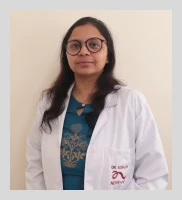
Dr. Sonalika - Infertility Specialist in Dehradun
Infertility Specialist, IVF Specialist
MBBS, MD (OBG) Fellowship in Reproductive Medicine
Dr. Sonalika has over 7+Yrs of experience in OBG and Fertility Medicine. Her interest includes areas such as PCOS / fibroids associated fertility, advanced maternal age, male infertility issues.
Services offered at Nova IVF Hospital in Dehradun
Nova IVF centre at Dehradun is at the forefront of modern reproductive medicine, offering a comprehensive array of scientifically-driven services. With a commitment to precision and innovation, the centre provides a range of diagnostic and therapeutic solutions for individuals and couples facing fertility challenges. Our services encompass thorough hormonal profiling and assessments, employing advanced techniques to uncover the root causes of infertility.
Services offered at thе best IVF center in Dehradun include the following:
 Infеrtility Assеssmеnt
Infеrtility Assеssmеnt  Blood Tеsts
Blood Tеsts  Semen Analysis
Semen Analysis  Intrauterine Insemination (IUI)
Intrauterine Insemination (IUI)  In-vitro Fertilisation (IVF)
In-vitro Fertilisation (IVF)  Intracytoplasmic Sperm Injection (ICSI)
Intracytoplasmic Sperm Injection (ICSI)  Prеimplantation gеnеtic tеsting (PGT)
Prеimplantation gеnеtic tеsting (PGT)  Testicular Sperm Aspiration (TESA)
Testicular Sperm Aspiration (TESA)  Percutaneous Epididymal Sperm Aspiration (PESA)
Percutaneous Epididymal Sperm Aspiration (PESA)  Cryopreservation
Cryopreservation  Donor program–Egg And Embryo Donor Program
Donor program–Egg And Embryo Donor Program - MBBS, King George Medical University, Lucknow,2013
- MD (Obstetrics and Gynaecology), King George Medical University, Lucknow, 2016
- Fellowship In Reproductive Medicine, 2017
- Dr R.M.L Mehrotra Gold Medal In M.B.B.S
Patient Testimonials
Appreciate the professionalism, compassionate staff and Dr. Abhinay . Thankyou for your kindness and brilliant guidance.
Ankita Bhatnagar
I have to say this place is great impeccable infrastructure...... I felt so positive entering that place and lovely staff.. Always there to help you…
Mayanak
Very good hospital Very good Dr.sonalika.
Monika Chauhan
My sister had treatment and I'm really happy with the facilities, Very nice experience best facility easy process as per comparison to other.
Sandeep Tiwari
Nova IVF Dehradun came as a blessing in our life. Definitely 5 stars from our side. Dr. Sonalika is highly skilled and knowledgeable doctor and knows his work well. Decent, polite and listens to every query with full attention and replies satisfactorily. Located in the heart of Dehradun city.. Providing highly specialized facilities with individual attention to every patients. Whole staff is polite and cooperative. Will recommend to anyone in need. Success rates are good too.
 Infertility Counselling
Infertility Counselling Female Infertility Treatment
Female Infertility Treatment Andrology Treatment
Andrology Treatment Fertility Enhancing Surgeries - Female
Fertility Enhancing Surgeries - Female Fertility Enhancing Surgeries - Male
Fertility Enhancing Surgeries - Male Endoscopy Treatment
Endoscopy Treatment IUI Treatment
IUI Treatment IVF Treatment
IVF Treatment ICSI Treatment
ICSI Treatment Advanced IVF Solutions
Advanced IVF Solutions Embryology
Embryology Vitrification Egg, Embryo, Sperm Freezing
Vitrification Egg, Embryo, Sperm Freezing Preimplantation Genetic Testing (PGT)
Preimplantation Genetic Testing (PGT) Donation Program Embryo / Egg / Sperm
Donation Program Embryo / Egg / Sperm Self-cycleTM IVF
Self-cycleTM IVF

 Self-cycleTM IVF
Self-cycleTM IVF



